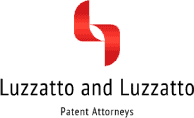
AI Determined Ineligible to be Considered an Inventor Under Israeli Law


In March, 2023, the Israeli Patent Office (ILPTO) issued a long-awaited administrative decision regarding the eligibility of an artificial intelligence (“AI”) computing system to serve as an “inventor” under Israeli patent law. The opinion ruled that, under the present legal framework, AI is not eligible to be an inventor. In this ruling, the ILPTO aligned itself with nearly all jurisdictions to have considered the question to date. The ILPTO’s decision reflected its policy interest in the application of a uniform patent policy on unsettled matters of patent law. In addition, the rejection of the applications worldwide reflects the technological and legal reality that, at present, inventions generated with the assistance of AI are properly attributed to human inventors.
In August, 2019, Dr. Stephen Thaler filed two Israeli patent applications which were purportedly invented by his AI software program, DABUS. DABUS, which stands for Device for the Autonomous Bootstrapping of Unified Sentience, is an artificial intelligence program created by Dr. Thaler, who submitted parallel patent applications in many other countries. In each Application, Dr. Thaler specified that the invention “was autonomously generated by DABUS, an artificial intelligence,” and that Dr. Thaler came to be the owner of the invention through “assignment.”
In analyzing the legal issues presented by the designation of DABUS as the inventor, the ILPTO considered two intertwined issues: 1) Can artificial intelligence be considered an “inventor” under the patent statute? 2) Can a party acquire rights to file a patent application from an artificial intelligence?
With regard to the first question, the ILPTO determined that, under the Israeli patent statute, the term “inventor” is limited to human beings. The ILPTO derived this determination based on its analysis of plain language of the statute, informed by dictionary definitions and common usage.
With regard to the second question, the ILPTO determined that an Applicant’s right to file a patent application must derive from an “inventor.” This derivation may occur, for example, by an assignment or through a contract. There is no legal way to acquire the rights to file a patent application from an entity that is not an “inventor.” In view of this, even if, in common law, the “Doctrine of Accession” provides ownership of the things made by a machine to the owner of a machine, this has no relevance in patent law, because the machine cannot be considered an “inventor.” Accordingly, because Dr. Thaler contended to have acquired his rights from a non-inventor, namely DABUS, Dr. Thaler could not be the legal "Applicant."
The ILPTO’s decision also considered policy considerations and foreign law. With respect to policy, Dr. Thaler had argued that the public policy of the patent system, namely the encouragement of innovation, would be served by the protection of inventions generated by AI. The ILPTO’s opinion noted that this contention is far from settled. In addition, in today’s global IP economy, in the absence of universal consensus in favor of protecting inventions by AI, one country’s extension of protections would lack meaningful impact.
With regard to foreign law, the ruling surveyed the opinions of patent offices and courts in the United States, United Kingdom, European Patent Office, and Australia. All of the surveyed jurisdictions had concluded that the patents could not be granted, essentially for the reasons set forth above.
In our view, the ILPTO’s refusal to break with the rest of the world was wholly expected and is indeed typical of its general approach in development of patent law. Indeed, the ILPTO’s relative delay in issuing this decision, on a case that has been pending for nearly four years, allowed it to present the issue as settled in international practice. For example, in 2021, an Australian court made headlines as being the first to recognize the legal ability of DABUS to serve as an inventor. However, this ruling was overruled in 2022 by an appellate court, and, as of today, Australia stands with the rest of the world in not permitting an artificial intelligence to serve as an inventor. To date, only South Africa has granted a patent on the inventions registered with DABUS as an inventor. However, it should be noted that South Africa operates a depository system: the patent office only checks for basic formal requirements and does not examine the application on its merits. Perhaps for this reason, the ILPTO did not even consider South Africa to be a relevant precedent.
To be clear, neither Israel nor other patent jurisdictions, can be accused of being inflexible in the adaptation of patent law to modern realities. Indeed, quite the opposite is true. Legal doctrines develop over time, and, as society grapples with new technological phenomena, the doctrines become better-suited to reality. For example, the rise of computer-implemented inventions posed new challenges with regard to the line between patentable computer-implemented processes and abstract ideas. Over the course of approximately two decades, the United States hashed out different legal frameworks for drawing this line.
At one point, the United States applied a much more permissive standard for the patentability of computer-implemented inventions compared to Europe. Eventually, following the Alice decision by the United States Supreme Court in 2014, US practice stabilized, and the U.S. standard has become substantively equivalent to the European standard. In another example, over the last decade, biological treatments have risen, alongside chemical pharmaceuticals, in their use and effectiveness. Patent law adapted to this new phenomenon by extending protections previously afforded only to pharmaceutical patents, such as patent term extension, to patents on biological treatments. These extensions have been implemented either by statute or, in the case of Israel, through case law or administrative decisions.
In the present context, were there indeed a legal lacuna for the protection of inventions generated by AI, we have no doubt that patent law would adapt, in a reasoned and appropriate manner, to meet the challenge.
Indeed, there lies the rub. In the present case, Dr. Thaler had a ready mechanism available for acquiring patent protection for these inventions: to list himself as the inventor. Dr. Thaler has already availed himself of this option in certain jurisdictions. In our experience, this mechanism is wholly consistent with the present technological state of AI. It is not yet possible to separate artificial intelligence from the human programmers that supply the data and the programming to enable the artificial intelligence to generate results. Indeed, the problem of bias in artificial intelligence is well-known and is further evidence of the imprint that humans leave on their artificial intelligence programs. Dr. Thaler’s attempt to short-circuit the process of legal development by listing AI as an inventor was premature and was doomed to fail. And while perhaps, as the Israeli patent office decision notes, the time may come in which courts will have to address the question of “what human involvement is required in order for a person to be considered as an inventor in an invention made with the aid of a machine,” we do not foresee that time arriving in the near future. Until then, we will continue to celebrate and promote inventions made by our clients, human inventors, utilizing all tools and resources at their disposal.

Relevant Articles
Regarding Patent Term Extensions in Israel
